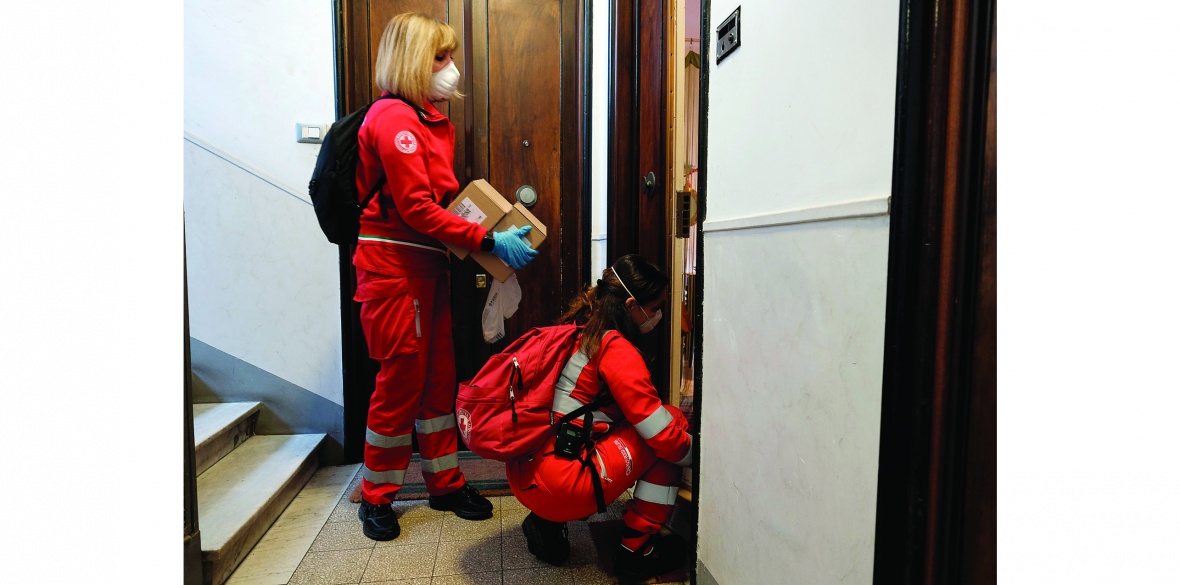This is the last article you can read this month
You can read more article this month
You can read more articles this month
Sorry your limit is up for this month
Reset on:
Please help support the Morning Star by subscribing here
AS SPIKES in coronavirus (Covid-19) cases amongst the elderly continues to be highlighted by medical authorities, few governments are addressing this issue strategically.
In the US where elderly care facilities in Washington state are reporting deaths with some nursing homes having 50 possible cases among 108 residents, for instance, the emergency is clearly hitting this demographic over all others.
Italy’s elderly population is suffering gravely from this virus given that 23 per cent of the Italian population is over 65 and the fatalities are hitting those between 63 and 95 despite many having other serious illnesses. In Britain, the first fatality was a woman in her 70s and the government is still in the “containment phase” of the government’s response to the outbreak.
As the US braces for more deaths as a result of Covid-19 with nine people having died as of Wednesday most of whom were elderly, many governments are bracing themselves for the worst in handling the illnesses of mostly elderly people.
There is new technology that would prove to be useful for both the elderly and their carers right about now. From the first launch of the iPad, what computer companies learned was how the elderly are not only perfectly able to use technology but this population is perfectly able to adapt to the changing interfaces and software in addition that such technology offers.
From the ability to submit forms, consult with doctors and take tests online, we are seeing how new technology is proving a benefit to the elderly. Hence the original iPad was as much a hit with children as it was their grandparents. From the use of tablets with LED screens that allow for an easy-to-use touch interface to the ability to now operate many functions with voice commands, the elderly would benefit from more technology when the social and governmental systems fail them in the era of a pandemic.
Telemedicine is quickly becoming a standard fixture of medical care and we mustn’t deny the potential assistance this offers the elderly. When nurses are in short supply, hospital staff stretched, medical-alert and patient care systems are able to take over minor care that allows medical specialists the time and energy to handle such problems as require humans to deal with.
Even AI (artificial intelligence) is sophisticated enough today such that it can piggyback on the work of human caregivers. For instance, AI can provide warnings when an elderly person has fallen ill, fallen out of bed or had a fall at home.
In Japan, robots are being rolled out in nursing homes to help people get out of bed or to get them food or turn off the lights. Additionally, AI call allow caregivers to provide better care to a larger numbers of people by taking over tasks that AI is best at doing while allowing the human carer to do what she is best at. New technology can prove to be beneficial to people with disabilities as noted by Owen Spencer-Thomas, a journalist who has worked extensively in the field of disability.
While governments are scrambling to deal with this virus as it hits the 125,000 mark internationally and 15,113 in Italy this week, we are going to see a severe increase of fatalities of the elderly from conditions that are easily resolvable such as the provisions of food and liquid.
New technology holds the promise to assist in this task as caregivers are working five-day shifts and medical staff are falling ill. Add onto this that the many caregivers with children are unable to go to work with all the schools and nurseries closed for at least another month. We need to ensure that our elders are cared for and not forgotten as many countries are focussing their efforts on mitigating the spread of this virus.
The most vulnerable group of this pandemic is the elderly and one need merely to look at Twitter to see how some of the Gen Z are cheering on the demise of the aged populations with the hashtag #BoomerDoomer. While new technology might offer some lifesaving assistance for the elderly with this virus, it is also offering the most cruel of our species an outlet for spreading ageist and hateful commentary.









